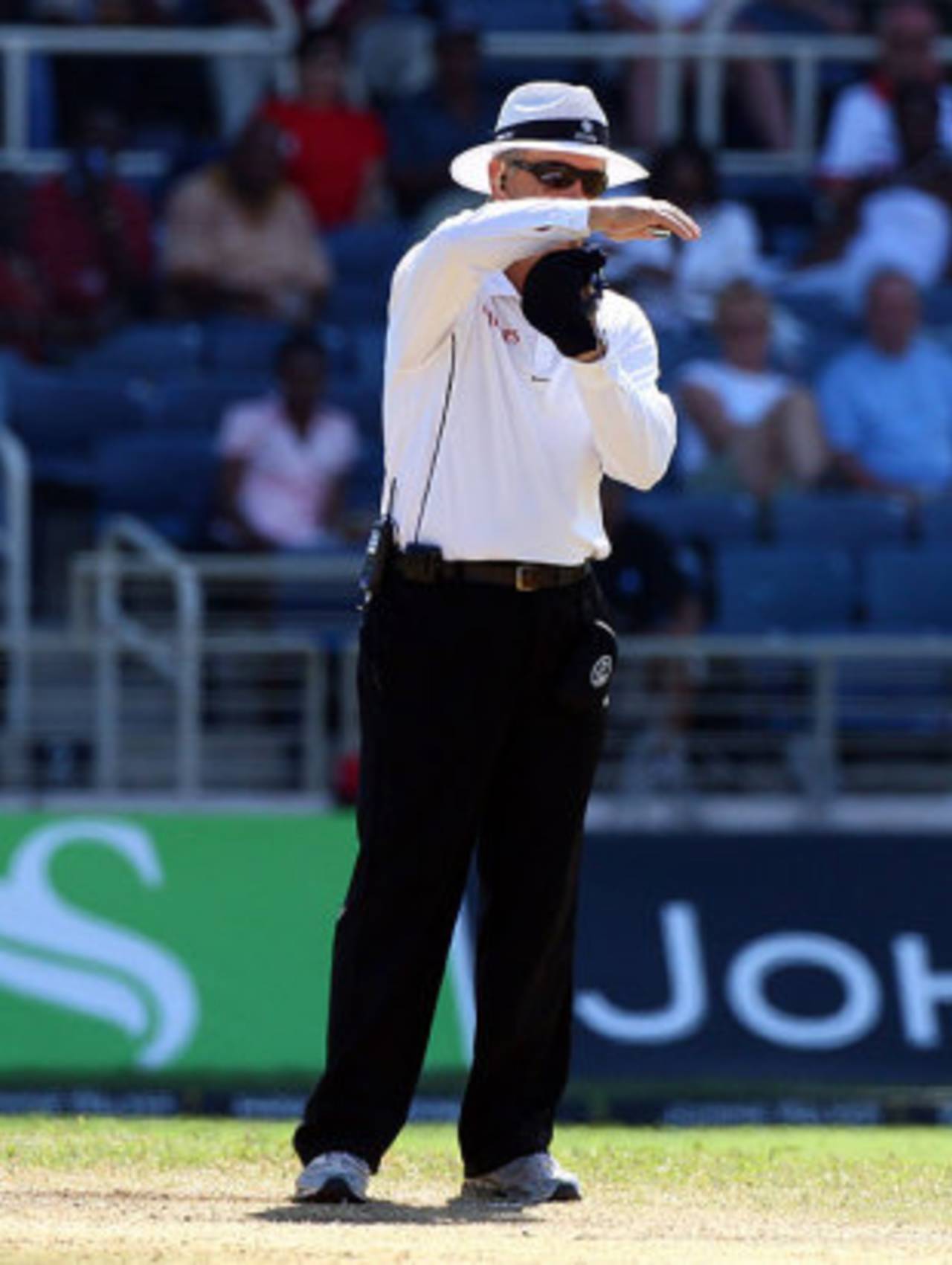When Australia tour India for a two-Test, three-ODI series this October, all the technology required for the controversial Umpire Decision Review System (UDRS) will be in place at every venue. In all likelihood, however, given the BCCI's reluctance to use UDRS, its beneficiaries will not be the cricketers or the umpires, but the television audience.
Under the ICC's current regulations, the mandatory requirements needed for the UDRS system are, the ball-tracking technology, Super Slo-Mo and a 'clear' stump mike, all of which are available to and will be used by the Neo Sports production team that broadcasts India's home matches. A Neo executive confirmed to Cricinfo that if the BCCI were to suddenly alter their hard stance on the UDRS, the system could be put into place at short notice.
Yet, the chances of the technology being used are extremely slender, despite Cricket Australia's (CA) enthusiasm and support for UDRS. Regardless of the BCCI's consistent resistance to the new practice which has been welcomed across the world, Cricket Australia will push the UDRS as one of its early suggestions in the Memorandum of Understanding with the BCCI for the series. According to CA spokesman Peter Young, CA's head of cricket Michael Brown who will head the MoU disussions is "hopeful that they will be interested in our view."
Young said CA acknowledged, "there are some practical issues: cost, consistent technology. But the principle is clear, let's now pursue that principle by trying to address the practical issues." Australia's interest behind the UDRS for the forthcoming series will be dependant not merely on the strength of their case but on the BCCI's quite trenchant view. The MoU between two teams is usually finalised around two-three months before a series. The BCCI's stand that "the decision of the host country is important," would considerably reduce Australia's chances to drum any enthusiasm from the Indians over the UDRS.
CA's support for the system is driven from the top by CEO James Sutherland and is backed, Young said, by the data produced from its early experiments. At the start of this year, ICC general manager Dave Richardson announced that in the 13 southern-hemisphere Tests that had included the UDRS, it was estimated that 97 percent of umpiring decisions under UDRS had been proved to be accurate as compared to 92 percent without the UDRS.
India's allergy to the new system comes accompanied by mixed signals: that the senior players are not impressed by or believe in the technology that accompanies it and that the only technology they have any faith in, Hot Spot, is too expensive to be used at home games.
The ball-tracking technology which is now central to the UDRS refers to the Hawkeye / Virtual Eye technology which simulates the path of a ball from the bowler's hand to passing the stumps. It was given the cold shoulder by India captain MS Dhoni and Sachin Tendulkar but the company behind it has entered into a three-year agreement with the BCCI to form part of television coverage of matches played in India. The inventor of Hawkeye, Paul Hawkins told Cricinfo, "We are going to be there (in India) anyway. We are contracted to do all cricket in India with the BCCI, for three years." About the UDRS, Hawkins said, "Our understanding is that India don't want to do it".
BCCI secretary N Srinivasan refused to comment on the CA move saying that the discussion between the two boards about the UDRS was about a "privacy of process."
Sharda Ugra is senior editor at Cricinfo
